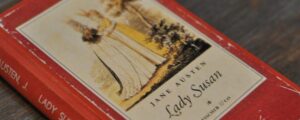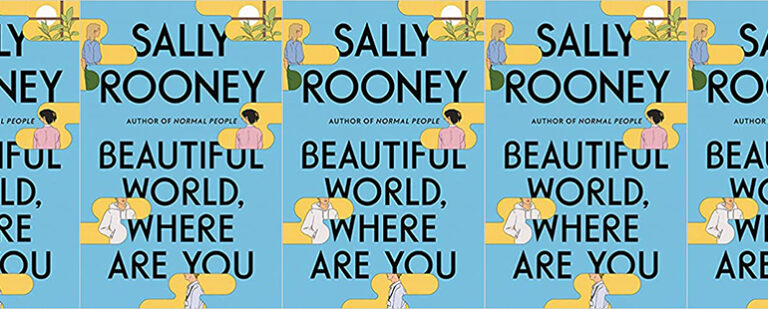Whit Stillman and Jane Austen: Together Again for the First Time

Everybody from P.D. James to your best friend’s sister seems to be writing Jane Austen fan fiction but the only fanfic I’m really excited about right now is Whit Stillman’s reimagining of Lady Susan, an early epistolary novella. As it happens, Stillman’s latest film Love & Friendship is an adaptation of the book starring his preferred leading ladies Kate Beckinsale and Chloe Sevigny. It is also the title of a novel written by Stillman that takes the letter-writing format of the original, turns it into a traditional narrative and adds an ending to the original unfinished work.
Because Stillman is a besotted fan whose style and subject matter align so closely with Austen’s, he is the perfect writer/director to give Austen the witty, slightly subversive treatment her work deserves. Now I’ll admit I’ve watched the BBC Colin Firth-Jennifer Ehle version of Pride and Prejudice more than any reasonable person probably should have. But what first drew me to Austen was her wit and her ability to take the precarious situation of unmarried women of the era with all its disappointments and compromises, put it in the hands of a smart self-confident female character, and weave it into a happy ending that might even include true love.
The very best adaptations also understand that Austen’s world is often not that different from our own. The 1995 film Clueless (directed by Amy Heckerling, starring Alicia Silverstone and Brittany Murphy) moves Emma forward by about 250 years with no real signs of damage and gives us the classic line “That was way harsh, Tai.” Meanwhile, The Lizzie Bennet Diaries, a modern-day multi-chapter tour de force video blog based on Pride and Prejudice, features what could be the most perfect depiction of flirtatious, boy-crazy Lydia ever to step off the original page. Mrs. Bennet is an overbearing steel magnolia, and there’s a sweet but geeky consort for super shy sister Jane named Bing Lee.
Stillman’s films, including Metropolitan, Barcelona and The Last Days of Disco, have developed a cult following devoted to his excessively mannered stories of upper-class life. He said he chose to adapt Lady Susan because the story was too good to remain unknown and was too difficult to read in its original form as a series of letters. He gave the movie and the accompanying novel the more Austen-esque title Love and Friendship in the hope of reaching a larger audience of both Janeites and the general public. The interesting bit is that instead of taking Austen forward into the new millennium, he builds on Austen’s original idea and then takes his urban haute bourgeoisie style back to the Regency period. The result of this ‘collaboration’ will appeal to fans of both the author and the director.
The central preoccupation of Love and Friendship is Lady Susan Vernon, a “really exceptionally pretty” widow and mother of an artless teenage daughter who hinders more than helps Lady Susan find a suitable husband and living arrangement. Her options begin to dwindle due to a series of scandals, so she sets her sights on Churchill, the country home of her brother and sister-in-law, their children and the sister-in-law’s very eligible bachelor brother. Her plan is simple. She will win them over with her words. “If I am vain of anything, it is of my eloquence,” Lady Susan tells her confidante Mrs. Johnson. “And here I have opportunity enough for the exercise of my talent, as the chief of my time is spent in conversation.” The goal is independence and a good marriage. “Our present comfortable state is of the most precarious sort,” she tells daughter Frederica. “We don’t live, we visit. We are entirely at the mercy of our friends and relations … To depend on the kindness of strangers or family is a terrible fate.”
What happens next is the launching of the Lady Susan charm offensive that washes over all the other characters like a tsunami. They see it coming, are helpless to do anything about it and later admit they sort of enjoyed getting wet and yes, nearly drowning.
Lady Susan fits nicely in Stillman’s world of haute monde hustlers who wield manners and polite conversation like samurai swords. Lady Susan is a different kind of Austen heroine – more like Oscar Wilde’s Lady Windermere than Austen’s Elizabeth Bennet – her inappropriate romances and unapologetic scheming make her more modern than most other Austen heroines.
When asked how much material Love and Friendship he borrowed from the novella, Stillman told The New York Times “I didn’t borrow. I stole. There’s tons.” This is great news for Austen fans and those looking for a ‘new’ work to read, discuss and watch on a big screen.
Stillman’s opinion of Lady Susan is clear from the title – he means his version of events to be a spirited defense of the bad mommy, the super-flirt and fortune hunter extraordinaire. Some will argue that she doesn’t need vindication. Others would argue she could never get enough. Is she completely amoral or just a single mother desperate for security? Whether Stillman absolves Lady Susan or castigates her further is for each reader to decide, and it’s a delightful task.


